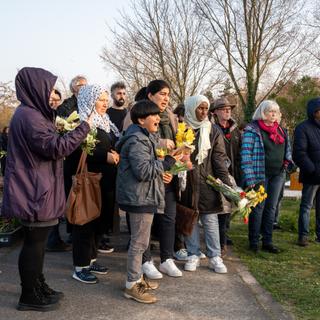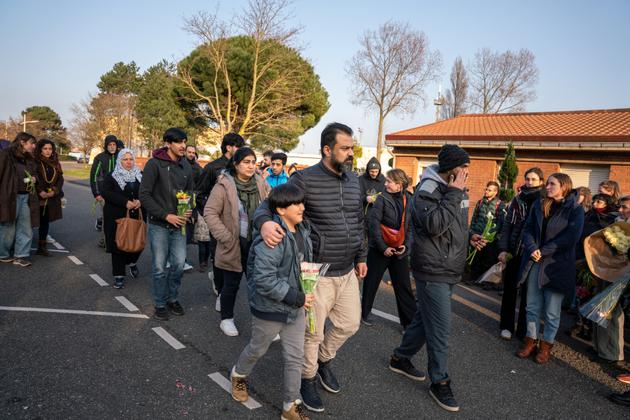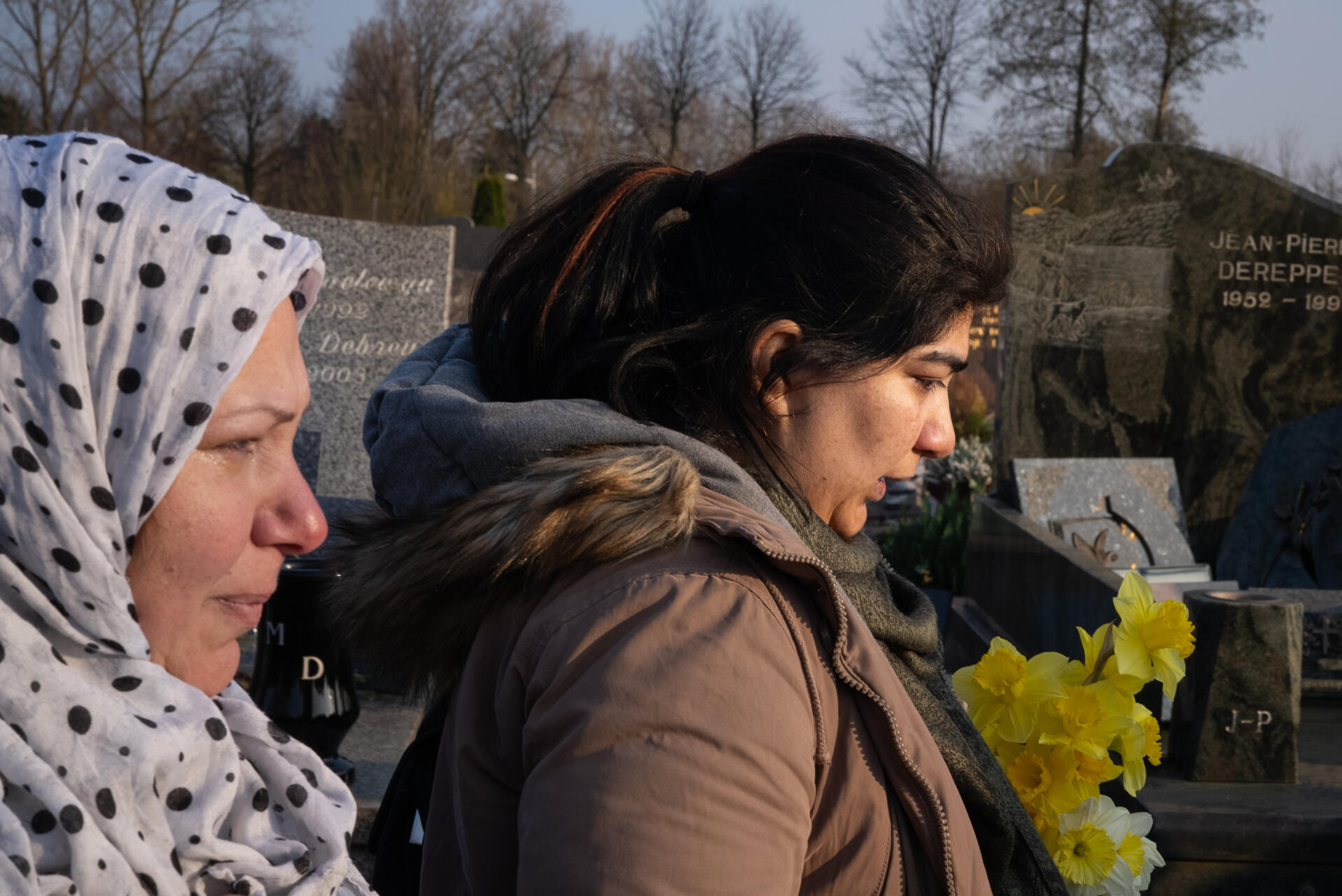


The story of 7-year-old Rola Al Mayali, who drowned while her family was trying to cross to England
FeatureThe makeshift boat carrying the little girl and her Iraqi family, along with some 15 other migrants, capsized on March 3, in the Aa canal in northern France, 30 kilometers from the coast. Around 100 people attended her funeral in northern France.
A blue Kiki cuddle toy was laid on the ground. Alongside, bouquets of roses, daffodils and tulips were placed. At the southern end of the new Grande-Synthe cemetery in northern France, next to a secondary road and beneath a high-voltage power line, the body of little Rola Al Mayali now lies. Born in 2016 in Iraq, she drowned on Sunday, March 3, in the Aa canal near Watten, as her parents were attempting to reach England.
The small river fishing boat they had boarded during the night immediately capsized before even setting off for the North Sea. Under the weight of around 20 people on board, it overturned, and the little girl found herself trapped in the cabin.
A photo of Rola was placed on the earth covering her grave in the cemetery's Muslim section. In it, she is wearing a pink T-shirt with a unicorn drawing printed on it, and she is smiling. "She hadn't asked for anything, she was just following her parents," said a young man who came to attend the funeral on March 7.
'Our sister was the best at school'
A little under 100 people came to pay their respects to the young Iraqi girl. They were mainly NGO activists, who work along along the coast, providing shelter and care for the most vulnerable, and distributing meals in the camps of Calais and nearby Loon-Plage. They were present alongside the little girl's parents, Mohamed and Nour, and her three brothers, Muhaimen, 14, Hassan, 10, and Moamel, 8. The two youngest mourned their sister next to their mother, who was more than eight months pregnant, while the father put a handful of the soil that covered his daughter's burial place into a small plastic bag. A soil he had never imagined he would tread when he left Baghdad in 2017, where he was working as a bus driver.


"We lived for three years and five months in Greece and two years in Germany, in Oldenburg [Lower Saxony]," he said. "Each time, our asylum applications were rejected, and we were afraid of being deported back to Iraq. If Germany had given us papers, my daughter wouldn't have died." "Our sister was the best at school," recalled his eldest son, Muhaimen, in rudimentary English. "It's because of Dublin that we can't stay in Europe," he said, mimicking fingerprinting with his hands. The Dublin Regulation enables authorities in one European country to determine whether a foreigner has already been registered in another member state. Under this, countries can then refuse to process an asylum application and instead transfer the refugee back to the first country where they registered. "We have no choice but to try to go to England," said the 42-year-old father. "If we apply for asylum in France, we'll be 'dublined' and sent back."
You have 57.91% of this article left to read. The rest is for subscribers only.
